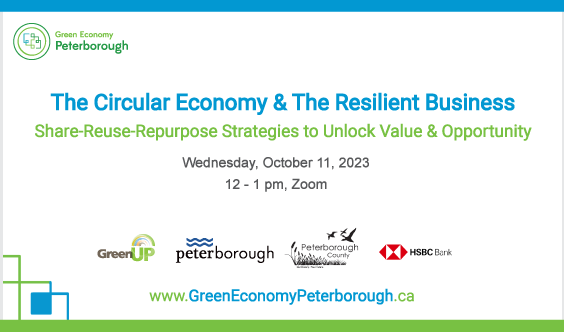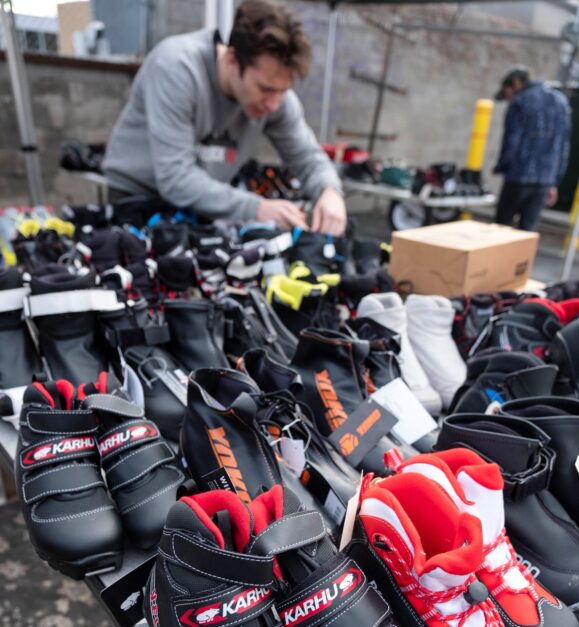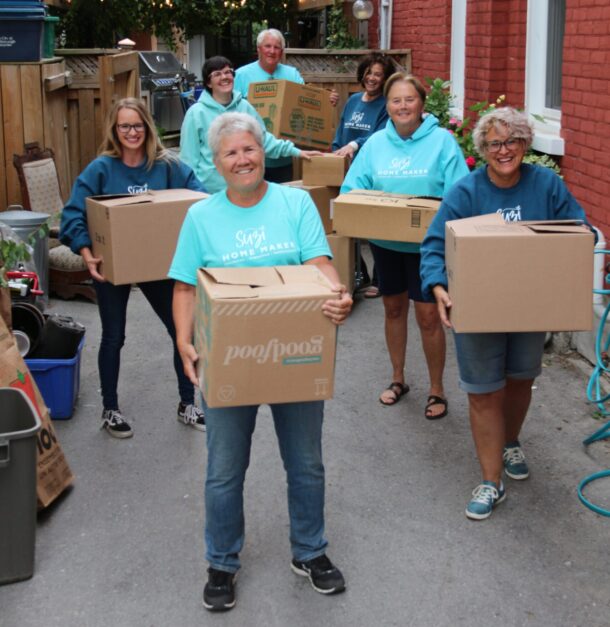Unlocking Opportunities & Value: The Circular Economy and Small Business

By Jackie Donaldson, Hub Coordinator, Green Economy Peterborough
Those of us who work and live in Peterborough and the Kawarthas know it as a vibrant centre of entrepreneurship, innovation and environmental stewardship. It is fitting then as we transition into the hustle and bustle of fall that October is Circular Economy Month, a new approach that can help businesses create value, discover new markets, and reduce costs all while contributing to a greener future.
The circular economy is an economic model that looks beyond the traditional linear “take-make-dispose” process. When a business implements a circular economy strategy – stated more simply as “share-reuse-repair-refurbish-recycle” – they manage their resources more rigorously and look for opportunities to reduce waste. They may share underutilized materials or equipment with business and community peers, repurpose products to appeal to new customers, refurbish equipment to reduce costs, or design products for longevity and recyclability.
The circular economy is key to financial and environmental success and small business plays a crucial role in advancing this concept in our communities. They are much more agile and innovative than their corporate cousins, able to influence their business peers, and more readily experience the benefits of newly implemented business activities.
On October 11, from noon – 1 pm, Green Economy Peterborough is inviting the business community to join us online for The Circular Economy & The Resilient Business: Share-Reuse-Repurpose Strategies to Unlock Value & Opportunity where you’ll learn more about the circular economy from Rob Arkell, Sustainability Specialist for Cambium Consulting + Engineering, and be inspired by the experiences of local business peers that have implemented share-reuse-repurpose practices.
Green Economy Peterborough (GEP) is a network and program for local organizations that wish to reduce their environmental impact. Hosted by GreenUP, the purpose of GEP is to guide its membership through a process to reduce greenhouse gas emissions and associated costs.

A founding member of Green Economy Peterborough, Wild Rock Outfitters, implements the circular economy strategy through their annual fall and spring gear swap. “Hosting gear swaps keeps equipment local,” states co-owner, Tori Silvera, “makes outdoor adventures more sustainable, strengthens our outdoors community and brings folks into our shop who might not otherwise make the trip down!”
While some Green Economy Peterborough members, like Wild Rock, build circular economy strategies into a more traditional business model, other businesses are built upon a circular economy concept.
Suzi Home Maker is a full-service senior move management business whose mission is to reduce the stress of relocation for older adults and their loved ones. Owner Susan Dunkley treats each client with compassion and respect, and that includes their housewares and furniture. “These items were a part of someone’s life,” states Dunkley. “Sending them off to the landfill is not an option. We make sure our customers items are rehomed and recycled as best we’re able as a part of their contribution to our community.”

Even service-oriented businesses can implement share-reuse-repair-refurbish-recycle strategies. Lett Architects, another Green Economy Leader, recognized their architectural drawings could be used again before recycling. They provide these large pieces of paper to a local daycare for their arts and craft activities.
Small businesses in Peterborough and the Kawarthas have a unique opportunity to lead the charge towards a more sustainable future through the circular economy. By adopting circular practices, small businesses can not only create economic value, they can strengthen their connection to the community and reduce their environmental footprint. Embracing the circular economy is a win-win-win proposition for all.

